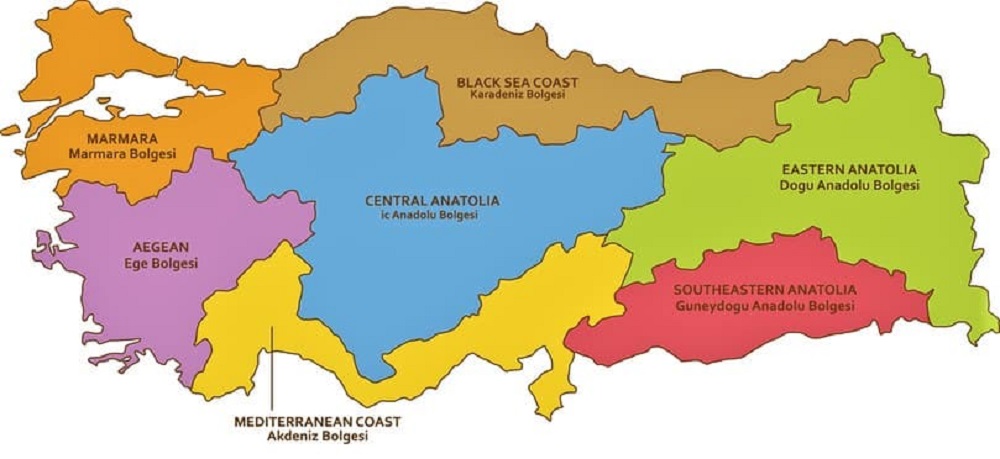The four western and central regions are all different in their climates. The Marmara region in northwest Turkey, including its former Ottoman capital cities, Edirne, Bursa, and Istanbul, has a mild climate. The average temperatures during the winter and summer months are 4 degrees Celsius and 27degC in the summer and winter, respectively. You can expect frost or snow from December through March. The summer’s heatwaves are humid and last for days, with temperatures reaching 35degC or more, which is common in urban areas packed with people. Autumn and spring are usually mild, but the weather can alter quickly. Lodos is a southwesterly wind that can cause havoc on marine transportation all year. The northeasterly wind, known as Poyraz, is responsible for bringing the frigid temperatures of the Black Sea into the Marmara Region in winter.

The climate that is the Aegean is remarkably mild. The summers are hot but seldom surpass 40degC, even in July and August. The spring and autumn months are clear, featuring blue sky and temperatures that average in the upper teens. The winters are cool with occasional rain. The numerous mountains that run parallel and perpendicular to the sea are home to the sea breeze, making the area ideal for farming. The Aegean cities that lie beyond these hills benefit a more continental climate. The region’s summer months are unbeatable for water sports, sunbathing, and mountain activities. A mild winter and a warm spring are perfect for exploring the ancient ruin sites.
The west Mediterranean area is blessed with the typical Mediterranean climate with dry and hot summers and moderately hot and wet winters. The summer lasts for nine months, except for midsummer when the coastline is quite livable. It is sunny throughout the year. Temperatures at sea never drop below 15 degrees Celsius nor exceed 28 degrees Celsius. In July and August, temperatures could exceed 40 degrees Celsius and make those crowded months a nightmare for unsuspecting tourists. In Marmaris, Antalya, Bodrum, Fethiye touristic city, the biggest urban area, the winter temperature never drops below 15 degrees Celsius. However, temperatures have been observed to reach 40degC, with humidity levels of 85 percent, illustrating the impact of climate on the most well-planned travel plans. The Mediterranean coastline is shielded from frigid northerly winds through the Taurus Mountains. The Taurus Mountains.
Central Anatolia has the characteristics of a continental climate because of its elevation; however, as you move to the east and south, it transforms into an extremely dry, cold climate. At a minimum of 25 centimetres annually, the rainfall is sporadic and is usually seen in autumn and spring. Conservation of water in cities such as Konya or Ankara is often a concern, especially during the summer season, and plants can fail in times of drought. The summers are extremely humid and scorching, temperatures reaching 29degC and dropping to mid-teens in the evening. Winters are snowy and cold, with temperatures generally between 5 and 2 degrees Celsius during the day. The amount of snowfall in winter is directly proportional to elevation.
